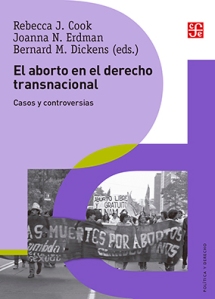SUBSCRIBE TO REPROHEALTHLAW: To receive these updates bi-monthly by email, enter your address in upper right corner of this webpage, then check your email to confirm the subscription.
DEVELOPMENTS
[Argentina, abortion, conscience] Argentina Ministry of Health issued a protocol expanding hospital abortion access to pregnancies resulting from rape. Raped girls 13 and over can have abortions without parental consent. The protocol also weakens a doctor’s ability to refuse to perform such abortions due to personal objection. New York Times, Dec 12, 2019.
[IACtHR, Ecuador], First standards for protection from sexual violence in schools: Paola del Rosario Guzmán Albarracín et al. v. Ecuador, Case C No. 405 (June 24, 2020) Sentencia en espanol – 85 paginas. Public Hearing Jan. 28 2020. Resolución (Asuntos) 7 paginas. Reprohealthlaw blog summary.
Case comment in English (10 pages).
Ugandan Constitutional Court declares maternal health a constitutional right. First African court to do so. The Center for Health Human Rights and Development (CEHURD) and 3 Others v Attorney General [2020], Constitutional Petition No. 16 of 2011 (Constitutional Court of Uganda at Kampala). [Maternal health] Decision of August 19, 2020. Reprohealthlaw blogpost. Longer comment with the Court’s twelve “Declarations.”
[United Kingdom, surrogacy] Whittington Hospital NHS Trust (Appellant) v. XX (Respondent) [2020] UK Supreme Court 14. (April 1, 2020) allows paid surrogacy, where legal, in foreign countries. Decision (24 pages). Article by Prof. Bernard Dickens.
WEBINARS
“Access to medical abortion: Global South perspectives,”, with Panelists Dr. Shilpa Shroff, Prof. Dipika Jain, Dr. Sana Durvesh, and Moderator, Sai Jyothirmai Racheria. Organizers: SARJAI and SAIGE. Friday, Sept. 4, 2020, 14:30 (GMT+8, Kuala Lumpur time). Register here for Sept 4.
“Telemedicine, self-managed abortion and access to abortion in the context of the Covid-19 pandemic,” chaired by Mariana Romero (Argentina). Speakers: Jade Maina (Kenya), Maria Mercedes Vivas (Colombia), Wendy V. Norman (Canada), Rodica Comendant (Moldova), Jasmine Lovely George (India), Kinga Jelinska (The Netherlands), Marge Berer (United Kingdom), to be held: Wednesday, September 23, 2020 (2:00-3:30 p.m. British Summer Time). Register here for Sept 23.
“Telemedicine / self-managed abortion is critical to strengthening women and girls’ reproductive rights and reducing maternal mortality” FIGO webinar, chaired by Prof. Dame Lesley Regan (FIGO), with speakers: Ambassador Dr. Eunice Brookman-Amissah (Ghana), Marge Berer (UK), Christina Zampas (Switzerland), Nelly Munyasia (Kenya), Evelyn Odhiambo (Kenya). Will be available in English, Spanish and French. To be held Thursday Sept. 24, 2020 at 15:00-16:30 (British Summer Time). Register for Sept 24.
SCHOLARSHIP
“Access to Abortion: An Annotated Bibliography of Reports and Scholarship,” prepared by the International Reproductive and Sexual Health Law Program, Faculty of Law, University of Toronto, 2nd edition, 2020, 44 pages, (organized by country, focuses on barriers and recommendations, ) Annotated bibliography.
[abortion] “Abortion,” thematic chapter in Comparative Human Rights Law, by Sandra Fredman (Oxford UP, Nov. 2018). Institutional access through Oxford Scholarship Online. About the book.
[abortion, Argentina, Ireland, US] “Argentina’s path to Legalizing Abortion: A comparative analysis of Ireland, the United States and Argentina,” by Andrea F. Noguera, Southwestern Journal of International Law 25.2 (2019): 356-392. Article online.
[abortion, Brazil, Argentina, Uruguay ] “Challenges and opportunities for access to legal and safe abortion in Latin America based on the scenarios in Brazil, Argentina, and Uruguay,” by Beatriz Galli – Cadernos de Saúde Pública, 2020 – SciELO Public Health
[abortion, Brazil] Understanding the sexual and reproductive health needs in Brazil’s Zika-affected region: placing women at the center of the discussion,” by D. Diniz, L. Brito, I. Ambrogi, AB Tavares, M. Ali. International of Gynaecology and Obstetrics 2019; 147: 17 Institutional access
[abortion, India] “Reimagining Reproductive Rights Jurisprudence in India: Reflections on the Recent Decisions on Privacy and Gender Equality from the Supreme Court of India,” by Dipika Jain and Payal Shah. Columbia Journal of Gender and Law 39.2(2020), 1-53. Article online.
[abortion law, India] “A Womb of One’s Own: Privacy and Reproductive Rights,” Arijeet Ghosh & Nitika Khaitan (2017) 52:42/43 Economic & Political Weekly, [1-9], re landmark Aug 24, 2017 privacy decision (Puttaswamy) already helped decriminalize homosexuality, adultery–potentially abortion. Article online.
Human Rights Quarterly is freely available online during the COVID-19 pandemic. All issues.
[obstetric violence] “Operationalizing a Human Rights-Based Approach to Address Mistreatment against Women during Childbirth,” by Christina Zampas, Avni Amin, Lucinda O’Hanlon, Alisha Bjerregaard, Hedieh Mehrtash, Rajat Khosla, and Özge Tunçalp, Health and Human Rights Journal, 22(1) 2020: 251-264 Article online.
[surrogacy] “Paid surrogacy abroad does not violate public policy: UK Supreme Court,” by Bernard M. Dickens, International Journal of Gynecology and Obstetrics 150.1 (2020): 129-133. PDF at Wiley Online. Abstract and Submitted Text.
[U.S. reproductive decisions] Feminist Judgments: Reproductive Justice Rewritten, ed. Kimberly Mutcherson, Cambridge UP, 2020. Book details.
US-focused news, resources, and legal developments are available on Repro Rights Prof Blog. View or subscribe.
Violence Against Women’s Health in International Law, new book by Sara De Vido, Manchester University Press, 2020. Abstract and Table of Contents.
JOBS
Links to employers in the field of Reproductive and Sexual Health Law are online here.
______________
Compiled by: the International Reproductive and Sexual Health Law Program, reprohealth*law at utoronto.ca. See Program website for our Publications, Information resources, and Reprohealthlaw Commentaries Series. TO JOIN THE REPROHEALTHLAW BLOG: enter your email address in the upper right corner of our blog, then check your email to confirm the subscription.



 Posted by reprohealthlaw
Posted by reprohealthlaw 



